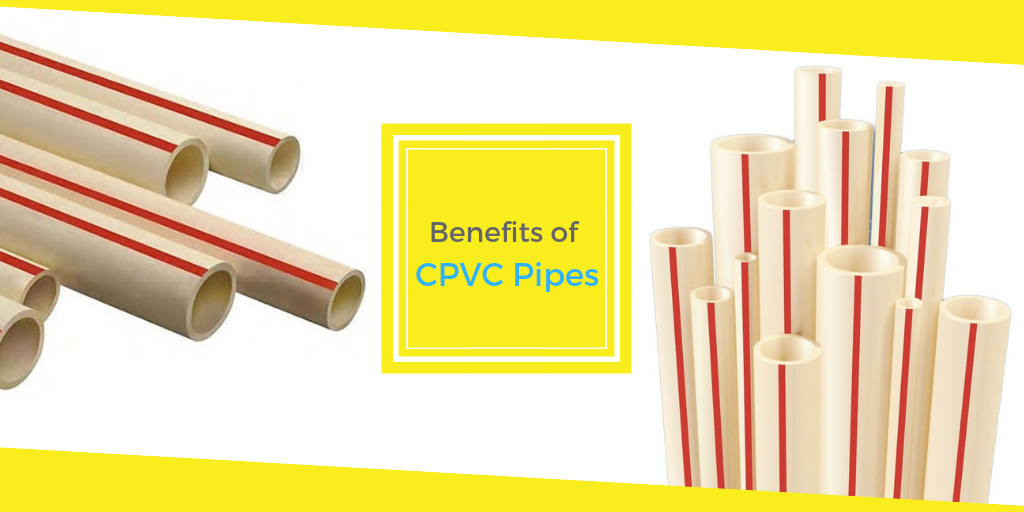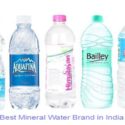The Must Know Benefits of CPVC Pipes
This post was last updated on July 5th, 2023

The rise in building cum construction sector, particularly in the housing & commercial segment has pepped up the demand for affordable and quality piping. The piping system should contain a comprehensive long term utility and perform on versatility, long term expenses, and environmental impact and drinking water safeguards, besides public health.
CPVC or Chlorinated Polyvinyl Chloride is the perfect choice due to its being corrosion resistant, smooth, durable, friction free, obstructs bacterial onset and eco-friendly, apart from a multitude of user friendly aspects.
An Overview Of CPVC Tubings
CPVC tubing are available in formal sizes varying from ½ to 2 inch copper tube size (CTS), besides pipe sizes varying from ½ to 24 inch in iron pipe size (IPS). CPVC tubing is SDR11 (1/2 to 2 inches) bearing regular hydrostatic pressure grading of 400 psi at 73oF (2,750 kPa at 23oC) and 100 psi at 180oF (690 kPa at 82oC). CPVC pipe and tubing are saleable in horizontal lengths.
CPVC comprises a piping system of high-temperature plastic pressure initiated for potable plumbing during 1959. It is being widely used in fire sprinkler systems since 1985. This component also finds uses in various industrial & process piping. The nominal sizes of CPVC pipe ranges from ½ inch to 24 inch and is certified for every model plumbing and mechanical codes throughout Canada and the United States. Additionally, CPVC pipe and fixtures from chosen manufacturers are catalogued for light hazard fire sprinkler units, as enumerated in NFPA 13, 13D and 13R standards.
This yellow plastic polymer was devised to manage the greater temperatures not withstood by regular PVC. It is also stronger than normal PVC. Besides, CPVC scores over copper also. It is normally a stable material and corrodes less easily than copper pipes. CPVC also installs 25% more quickly than copper; however, it does need more bracing.
Definition
CPVC comprises PVC (polyvinyl chloride) which has been chlorinated by a free radical chlorination reaction. It is produced by mixing chlorine to PVC within a water slurry or fluidized bed chlorination procedure. The chlorination reaction is started by ultraviolet light. The chlorinated PVC is mixed with components required for the preferred properties for additional processing. The chlorine combined to PVC offers CPVC higher temperature performance and superior fire and corrosion resistance.
Recommended: Best Brands of CPVC Pipes in India
Manifold Benefits Of CPVC Pipes
CPVC Pipes offers several crucial benefits such as:
1. Aesthetic, Extremely Simple, Economical To Use And Install
CPVC pipes are featherweight, which implies reduced shipping expenses together with speedier, safer and simpler management, cutting & installation, lowering overall labour expenses. Fast cold welding affords easy installation, which is affordable since electric or heat source is not required. Easy cutter, chamfering device and CPVC solvent comprise the sole requirements for absolute leak proof bonding.
2. Superb Resistance To Chemicals, Abrasion And Corrosion
CPVC does not disintegrate even in toughest water conditions and offensive service situations such as decreased PH water, exposure to coastal salt atmosphere and corrosive soils. It can also be covered right under concrete slabs without any chemical reaction with concrete.
3. Ideally Suited For Transporting Drinking Water
CPVC checks bacterial development, which retains the water quality hygienic and extremely nice. They are ideal even for hostile water PH levels below 6.5. CPVC Pipes intended for transporting water should possess NSF authorization as per ANSI/NSF Standard 61/ program policy 45 (pipes having RVCM levels so less as to be untraceable).
4. Smooth Inner Surface
Lack of hollowing, scaling and leaching in CPVC pipes, result in smooth and complete bore flow with reduced water sound. It keeps total water transporting capacity due to absence of scale build-up, evading water pressure wastage.
5. Energy Preserving, Reduced Thermal Conductivity And Insulation Expense
It has automatic insulation and reduced thermal conductivity that decreases heat and thus requires lesser insulation and also cost.
6. A Great Performer In Rigid Situations
These piping arrangements are strong and durable and contain bearings that withstand high pressure. It needs minimum hangers and attachment with few offsets.
7. No Requirement Of Water Hammers Due To Its Immense Flexibility
In normal situations, there is no need for WHA or water hammer arrestor that regulates pressure pulse caused by abrupt intervention of water. Besides, its intensity is almost one third of what pipes made of copper as well of steel can contain.
8. Highly Fire-resistant
The flame checking quality of CPVC pipes with a 60 grading of Limiting Oxygen Index (LOI) endorses the quality of its not being the ignition source of fire or sustaining combustion. It avoids increase of fire load, possesses reduced smoke creation and less flame spread with no flaming drips.
9. Affordable, Durable With Superb Permanent Reliability
CPVC pipes carry high knock strength plus durability. They have less initial expense and reduced maintenance costs in comparison to competitive materials.
10. Totally Leak Proof
The cold welding utilizing CPVC solvent is quick and simple, providing leak free installation throughout the piping system’s whole life span.
11. Perfect For House Plumbing Systems
The CPVC system is 4 times more silent than copper plumbing systems, lessening not only the sound of flowing water, but even the pounding sound of the water hammer. Its thermoplastic characteristics offer magnificent insulation to practically remove condensation and sweating. It retains warm water hotter and cool water colder as against copper plumbing. Energy wastage across pipe walls is minimal, saving expenses on heating and cooling.
CPVC pipes have been effectively used globally for more than forty years and its utility in Saudi Arabia for the carriage of demineralised water relieved them from the corrosion problem emerging from the galvanized pipe of steel. It carries a tested track record of being utilized in water sharing application in residences, apartments, condos, hotels and commercial spaces with increasingly growing demand.
Recommended For You
4 Ways to Uniquely Customize a Custom Plaque
Sujata Sanyal
Sujata Sanyal has been in the writing circuit for the past 7 years and has touched upon various genres like travel, health, lifestyle, a wee bit of technology, cuisine, product descriptions and a bevy of others. 1 part of her is interested in animated political discussions, 2nd part interested in studying biographies and the remainder part in love with music and socially relevant work. Too many parts?




